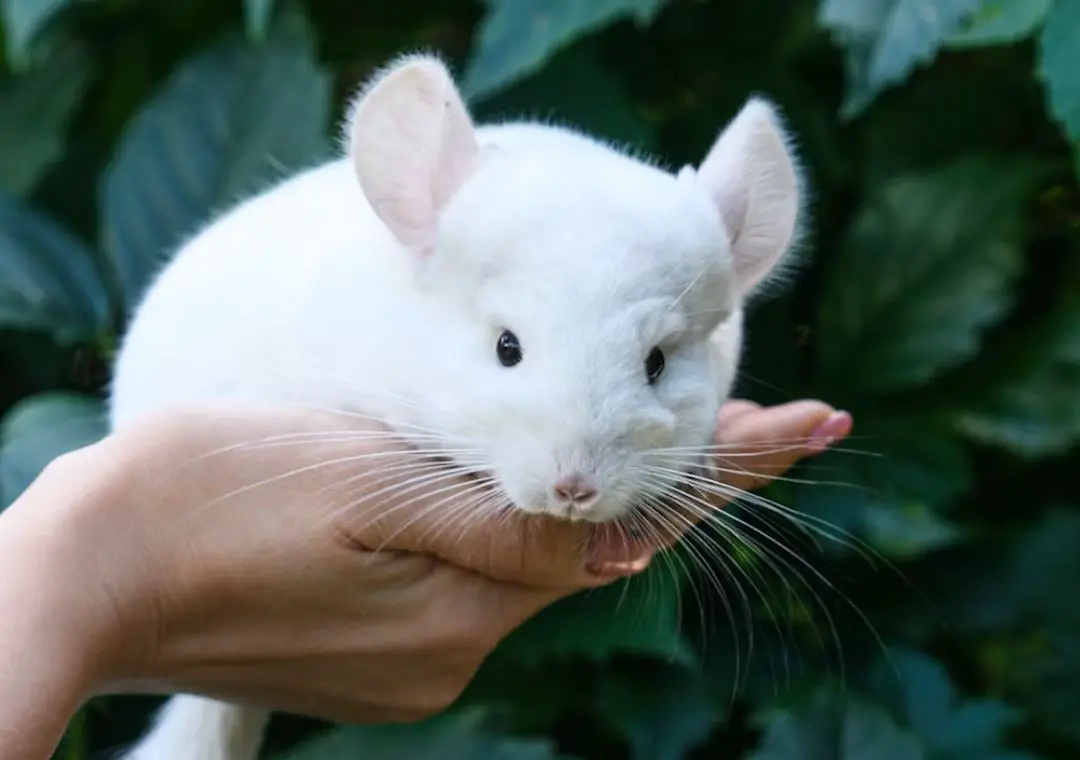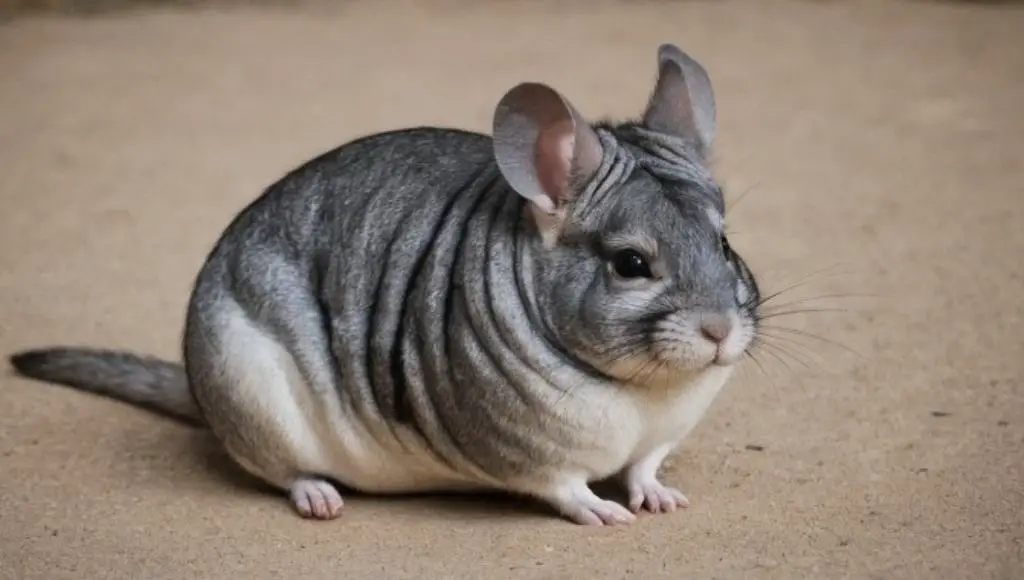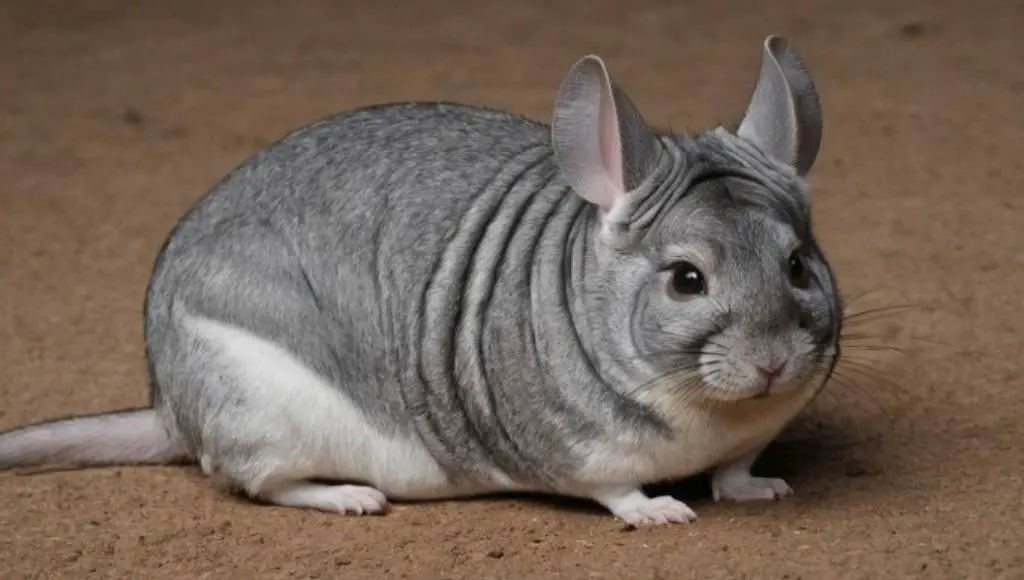20 Interesting Chinchillas As Pets Pros and Cons

Thinking about bringing home a chinchilla? Well, buckle up because today we’re diving into the pros and cons of having these adorable furballs as pets.
From their soft and luxurious coats to their quirky personalities, chinchillas can steal your heart in an instant.
But before you make the leap, let’s weigh the pros and cons to ensure it’s the right fit for you and your furry family.
Chinchillas As Pets Pros and Cons
Chinchillas can make adorable and entertaining pets. On the positive side, they are low-maintenance, requiring little grooming and minimal bathing due to their dust baths.
They are also known for their playful and curious nature and can form strong bonds with their owners.
However, it’s important to note that chinchillas have specific housing and diet requirements, and their delicate bones can be prone to injury.
Additionally, they are nocturnal creatures, which means they may be more active during the night, requiring some adjustment in terms of noise and activity levels.
Let’s break it down further…
Pros of owning a chinchilla

Here are some common pros of owning a chinchilla:
1. Low allergenic potential: One of the great things about chinchillas is that they have a low allergenic potential. This means that even people with allergies can often enjoy the company of these adorable little creatures without any discomfort.
2. Quiet and gentle: Chinchillas are known for their quiet and gentle nature. They are not prone to making loud noises or causing disturbances, making them perfect for those living in apartments or shared spaces. Plus, their gentle demeanor makes them great companions for both adults and children alike.
3. Little to no odor issues: Unlike some other small pets, chinchillas are relatively odorless. They have a clean and efficient digestive system, which means they produce minimal waste and have little to no unpleasant odor. This makes them a great choice for those who are sensitive to smells or simply want a pet that won’t leave a lingering scent in their home.
4. Energetic and entertaining: Chinchillas are incredibly energetic and entertaining animals. They love to explore their surroundings, hop around, and engage in playful antics. Watching them jump and play can be a delightful and amusing experience, providing endless entertainment and joy for their owners.
5. Incredibly easy to care for: Another major advantage of owning a chinchilla is that they are incredibly easy to care for. They have simple dietary needs, primarily consisting of high-quality hay, fresh water, and occasional treats. They also require minimal grooming, with regular dust baths to keep their fur clean and healthy. Their low-maintenance nature makes them an ideal choice for busy individuals or first-time pet owners.
6. Minimal shedding: One of the biggest advantages of having a chinchilla as a pet is their minimal shedding. Unlike many other furry companions, chinchillas have a dense and soft fur that doesn’t require constant grooming or leave you with a trail of hair all over your home. So, if you’re not a fan of vacuuming every day, a chinchilla might just be the perfect fit for you!
7. Naturally clean animals: Chinchillas are like the neat freaks of the animal kingdom. They have a built-in dust bath routine that keeps their fur clean and healthy. These adorable little fluffballs love to roll around in special volcanic dust, which helps remove excess oils and dirt from their fur. It’s like having a self-cleaning pet that knows how to stay fresh and fabulous!
8. Unique personalities and very intelligent: Chinchillas are not just cute faces; they’re also incredibly intelligent and have unique personalities. They can be playful, curious, and even mischievous at times. Some chinchillas love to explore their surroundings, while others enjoy cuddling up with their owners. It’s like having a little furry friend with its own distinct character, which makes every interaction with them a delightful adventure.
9. Long life spans: If you’re looking for a long-term furry companion, chinchillas are great candidates. These little critters have impressively long life spans, with many living up to 15 years or even more with proper care. So, if you’re ready to commit to a long and loving relationship, a chinchilla might just be the perfect match for you!
10. Love to be around their owners: Chinchillas are social animals that thrive on companionship. They love to be around their owners and enjoy interacting with them. Whether it’s playing, snuggling, or just hanging out, chinchillas adore spending quality time with their human pals. So, if you’re looking for a pet that will always be excited to see you and make your days brighter, a chinchilla will definitely fit the bill!
So, if you’re ready for a pet that will steal your heart and make you smile every day, consider welcoming a charming chinchilla into your home!
Learn more about common chinchilla behaviors.
Cons of owning a chinchilla

Here are some cons of owning a chinchilla:
1. Nocturnal and may disturb your sleeping schedule: Chinchillas are crepuscular animals, which means they are most active during dawn and dusk. While this can be a fun and fascinating trait to observe, it can also pose a challenge for those who value their uninterrupted sleep. Chinchillas tend to be more active at night, running on their wheels, exploring their cage, and making various sounds. If you are a light sleeper or have your chinchilla’s cage near your bedroom, their nocturnal activities may disturb your sleep. However, with proper planning and placement of their cage in a quieter area, you can minimize the impact on your sleeping schedule.
2. Sensitive to temperature and humidity: Chinchillas are native to the cool and dry climate of the Andes Mountains in South America. As a result, they are highly sensitive to both high temperatures and high humidity levels. Temperatures above 75°F (24°C) can be dangerous for chinchillas and can lead to heatstroke. Similarly, excessive humidity can cause respiratory issues and skin problems. It’s crucial to keep their living environment within a range of 60-70°F (15-21°C) and maintain humidity levels below 50%. This might require the use of air conditioning, fans, or keeping them in a cool room to ensure their well-being.
3. High initial cost: Owning a chinchilla does come with an upfront cost. Beyond the initial purchase price of the chinchilla itself, you’ll need to invest in a suitable cage that provides ample space for them to climb and play. Chinchillas are active animals that require mental stimulation, so you’ll also need to provide toys, platforms, and hiding spots within their enclosure. In addition, chinchillas have specific dietary requirements, including high-quality hay, chinchilla pellets, and occasional fresh fruits and vegetables. Regular veterinary check-ups and potential medical expenses should also be factored into the cost. While the initial investment can be higher than for some other small pets, with proper care, the costs can be spread out over time.
4. Challenging to bond with: Chinchillas are known for their independent and sometimes skittish nature. Building a bond with a chinchilla may take time and patience. They prefer to observe and explore their surroundings at their own pace. It’s important to provide a calm and quiet environment and approach them gently to gain their trust. Regular and consistent interaction, such as hand-feeding treats and spending time near their cage, can help foster a bond. It’s important to remember that each chinchilla has its own unique personality, and while some may warm up quickly, others may take longer to build that special connection.
5. Requires specialized care: Chinchillas have specific care needs that require attention and knowledge. They require a dust bath at least a few times a week to maintain their fur’s natural oils and prevent matting. This involves providing a suitable dust bath container with chinchilla-specific dust. Their diet should consist primarily of high-quality hay and chinchilla pellets to promote dental health and proper digestion. Fresh water should always be available. Chinchillas have sensitive digestive systems, so it’s crucial to avoid feeding them foods that are high in sugar, fat, or contain any toxic substances. They also need regular exercise outside of their cage to prevent obesity and maintain their overall well-being.
6. Prone to health issues if they are stressed: Chinchillas are highly sensitive creatures, and stress can have a significant impact on their health. They are easily stressed by loud noises, sudden movements, and changes in their environment. When stressed, chinchillas may experience digestive issues, fur loss, and even behavioral changes. It’s important to create a calm and quiet living space for your chinchilla and handle them gently to minimize stress.
Learn more about chinchilla health concerns.
7. Require a lot of space to move around and play: Chinchillas are active animals that love to explore and play. They require a large cage with plenty of room to hop, run, and jump. A cage that is too small can lead to boredom and frustration, which may result in behavioral problems or health issues. Providing a spacious environment with platforms, tunnels, and toys will keep your chinchilla mentally stimulated and physically fit.
8. Limited availability of veterinary care: Chinchillas have specialized needs and require veterinary care from professionals experienced in their care. However, finding a knowledgeable vet who has experience with chinchillas may be challenging, especially in certain areas. It’s important to research and locate a qualified veterinarian who can provide routine check-ups, vaccinations, and emergency care if needed.
9. Dust bath requirements: Chinchillas have unique bathing habits that involve rolling around in special dust to keep their fur clean and healthy. This is necessary because chinchilla fur is incredibly dense and can hold moisture, which can lead to skin problems. While it’s adorable to watch them take their dust baths, it does require some effort on your part to provide a suitable dust bath area and clean up the resulting dust cloud. It’s important to use chinchilla-specific dust and offer them regular dust baths to promote good hygiene.
10. Can be messy and require regular cage cleaning: Chinchillas are notorious for being messy creatures. They have a habit of scattering bedding, chewing on objects, and leaving droppings throughout their cage. Regular cleaning is essential to maintain a clean and healthy environment for your chinchilla. This includes changing bedding, removing waste, and disinfecting the cage on a regular basis to prevent odors and potential health issues.
While these cons may seem daunting, with proper care and attention, chinchillas can make wonderful pets.
FAQs
Are chinchillas good pets for families with young children?
Chinchillas can make great pets for families, but they may not be the best choice for families with very young children. Chinchillas are small and delicate animals that require gentle handling and a calm environment. They can be easily frightened or injured by rough handling, so it’s important that children are taught how to interact with them properly.
Do chinchillas require a lot of maintenance?
Chinchillas are relatively low-maintenance pets compared to some other animals. They don’t require daily walks like dogs, but they do need a clean living environment and fresh food and water. Their cages should be cleaned regularly, and they need to be provided with dust baths to keep their fur clean and healthy.
Are chinchillas noisy pets?
Chinchillas are generally quiet pets. They don’t bark or meow like cats and dogs, but they do make some sounds such as chirping, squeaking, or purring. However, these sounds are usually soft and not disruptive. So, if you’re looking for a pet that won’t disturb your neighbors, a chinchilla could be a great choice.
Are chinchillas social animals that enjoy human interaction?
Chinchillas are naturally social animals, but they can be a bit shy and reserved, especially when they are first introduced to a new environment. With patience and gentle handling, they can become comfortable with human interaction. However, it’s important to remember that each chinchilla has a unique personality, and some may be more sociable than others.
What are the pros of owning a chinchilla as a pet?
There are several pros to owning a chinchilla as a pet. Firstly, they have soft and luxurious fur that is fun to pet and cuddle. They are also generally clean animals and don’t have a strong odor. Additionally, chinchillas can live for a long time, with an average lifespan of 10-15 years, providing years of companionship.
What are the cons of owning a chinchilla as a pet?
While chinchillas can be wonderful pets, there are a few cons to consider. Chinchillas have sensitive digestive systems and require a specific diet, which can be more expensive than other small pets. They also need a large cage with plenty of space to exercise and play. Lastly, chinchillas are nocturnal animals, which means they are most active during the night, which may not align with everyone’s schedule.
Conclusion
So there you have it, folks! Chinchillas can make adorable and entertaining pets, bringing joy to your home with their fluffy charm. But remember, they require specialized care and can be a bit high-maintenance. So weigh the pros and cons, do your research, and decide if these lovable little furballs are the perfect fit for you. Happy pet hunting!
